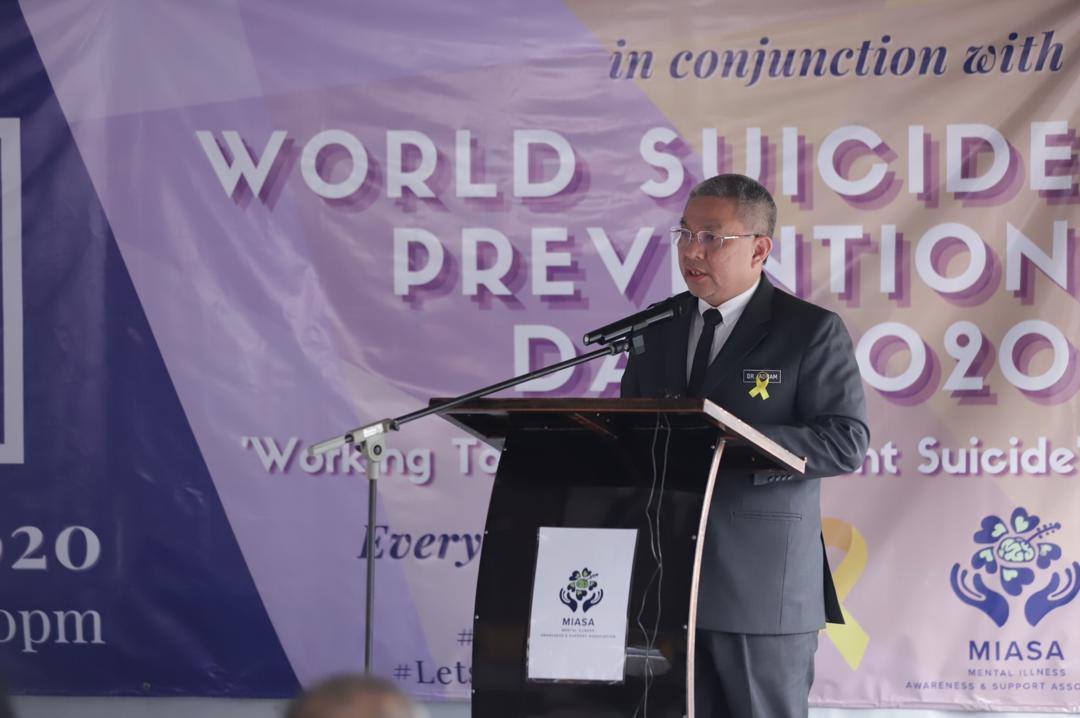KUALA LUMPUR, Oct 9 — The Ministry of Health (MOH) is planning to expand its community mental health centres (MENTARI) from the current 25 to 40 by the year 2030.
The National Health and Morbidity Survey 2019 estimated that 2.3 per cent of the Malaysian population suffer from depression, approximately half a million people, while 424,000 Malaysian children reportedly have mental health problems, including anxiety and depression.
“MOH plans to expand the MENTARI operation by one or two new MENTARIs each year and intends for 40 MENTARIs to be set up by the year 2030 to overcome an increase in mental health cases,” Dr Adham Baba told Senator Ras Adiba Mohd Radzi, who is a representative of persons of disability, at the Dewan Negara on September 14.
According to the health minister, MOH managed to open a total of 25 MENTARI centres by last year, an addition of 13 MENTARI centres from 2014.
“MENTARI Selayang has led this activity and the appointment of MENTARI technical advisors has been done to facilitate the management of MENTARIs throughout Malaysia,” Dr Adham told the Dewan Ngeara in his written parliamentary reply.
“Furthermore, MOH has added three new MENTARIs this year to carry out work support activities in MENTARI Seremban, MENTARI Batu Pahat, and MENTARI Segamat.”
He said that the main focus of the expansion of MENTARI operation will be to states that have only one MENTARI, like in Sabah and Kelantan, besides increasing the rehabilitation treatment and work support activities that are being conducted by the new MENTARIs.
Senator Ras Adiba had asked Dr Adham to state if MOH has plans to increase the number of MENTARI centres due to the spike in mental health cases.
However, Dr Adham said that the plan of expanding is still in its planning stage as it depends on the allocation provided by the Ministry of Finance (MOF) and the limited resources from the government.
“Cooperation from all ministries in overcoming mental health problems among the community is very much needed because every sector is a health sector and requires a shared responsibility,” the health minister said.
Dr Adham also pointed out that cooperation from the private sector and non-governmental organisations (NGOs) in providing volunteer support, appropriate employment, and financial assistance is essential to ensure the success in overcoming the mental health issues among the community.
“MOH hopes that all parties can work together to overcome mental health problems in accordance with the World Mental Health Day celebration themed “Mental Health for All- Greater Investment- – Greater Access”, which is scheduled to take place this October.”
Besides that, Senator Ras Adiba also asked the health minister to state the total number of individuals that have undergone the work support programme by MENTARI till December last year.
According to the health minister, a total of 1,011 mental health patients have undergone the work support programme across 25 MENTARI centres nationwide.
“The number of individuals that have undergone this work support program has shown a good improvement which is from 160 individuals in 2014, 453 individuals in 2017, to 1,011 mental health patients in 2019,” Dr Adham told the Dewan Negara.
The first MENTARI was established in Putrajaya in 2011 as an initiative by MOH to improve outreach and reintegration of individuals with mental health problems. It has now expanded to at least one centre in each state in the country and is managed by the psychiatry and mental health department of the nearest hospital.
The MENTARI team is led by a psychiatrist, while team members include medical officers, occupational therapists, nurses, medical social workers, and volunteers who provide assistance in non-clinical activities.
The main activities carried out by MENTARI include individual placement and support supported employment (IPS-SE), assertive community treatment, and support groups for patients and their carers.








